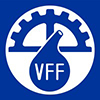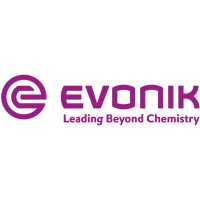-
SMOOTHFLOW from Albemarle offers a solution to FCC unit fluidization and circulation problems. Fluidization problems sometimes begin suddenly, often as the result of an unexpected process upset causing significant catalyst losses and possibly mechanical damage inside the unit. The finest catalyst particles in the circulating inventory are usually lost first, which results in a sharp increase in the equilibrium catalyst average particle size, Figure 1 In other cases, fluidization ...
-
Extremely low pressure drop with best mass transfer. The VFF-Twin-Pak®, a VFF-patent, is an entirely newly developed high-performance metal tower packing with a profile that comes close to the structured packings, while not doing without the numerous advantages of a tower packing. Its form combines an extremely low pressure drop with a convincing mass transfer! The VFF-Twin-Pak® is a high-performance tower packing, predestined for highest capacity. The mass transfer of the ...
-
Effective water removal creates extra capacity in your absorber-stripper
Free or soluble water carrying over from the FCC or Coker Main Fractionator overhead systems can cause foaming problems and flooding in the Absorber-Stripper columns. Column designs that incorporate effective water removal can free-up capacity for valuable naphtha or LPG production. The Problem Even with bulk water removal in the overhead knockout drums or high pressure receivers, water carryover can go hand-in-hand with capacity creep. Higher charge rates can create superficial ...
-
Fluid Catalytic Cracking (FCC) technology for reducing gasoline sulfur. BASF produces NaphthaClean technology designed for the reduction of sulfur without lowering gasoline production Premium Technology Based on the combination of BASF’s award-winning and commercially-proven Distributed Matrix Structures (DMS) technology and sulfur reduction technology, NaphthaClean gives the refiner both maximum gasoline production and maximum gasoline sulfur reduction. This technology ...
-
High-specification digital continuous emissions (CEMS) analyzer, designed for multi-gas measurement of criterion pollutants, greenhouse gases and reference oxygen. The advanced SERVOPRO 4900 Multigas delivers high-performance multi-gas monitoring designed specifically for the continuous emissions monitoring of flue gas. This sensitive analyzer uses a combination of Servomex’s leading-edge, patented, digital sensing technologies, including Paramagnetic O2, and the non-dispersive ...
-
Quantifying FCC catalyst accessibility
Accessibility is related to the mass-transfer characteristics of an FCC catalyst. Albemarle has developed a quantitative laboratory test that measures the accessibility of FCC catalyst particles: the first such measurement in the history of FCC. This test has dramatically altered the way refiners select and evaluate catalysts. Moreover, it is another example that demonstrates Albemarle’s continuing leadership in maximizing and exploiting the benefits of FCC catalyst mass ...
-
AFX™ catalysts for increased propylene production from FCC units
New technology to meet propylene demand. Fluid catalytic cracking (FCC) units are playing an increasingly important role in meeting the growing worldwide demand for propylene. To help refiners meet this demand better, Albemarle has introduced the innovative AFX catalyst technology and catalyst family, which are designed specifically for operation at high propylene yield. Before AFX, propylene production from an FCC unit with a traditional catalyst was limited. ZSM-5 based additives ...
-
Addressing Renewables and Biofuels Challenges
Becht provides highly technical support to clients in the renewable industry including biorefining, biofuels, biomass, solar and wind. We provided owner’s oversight on next-generation wind turbine technology in Europe and are actively consulting on next-generation nuclear technology in the US. Becht has provided insights to our clients seeking to add bio-based feedstocks into existing traditional crude refining technologies. We have provided strategic scale-up consulting and ...
-
Valmet offers a unique and complete range of solutions for your valve automation needs. With our actuator and controller products you can fulfill end user requirements for control, emergency shutdown and on/off valve applications. Our valve automation solutions will ensure the best possible valve performance and compliance to environmental regulations, regardless of valve make, model or manufacturer. Our offering ranges from limit switches to reliable actuators and intelligent ...
-
Tracerco Diagnostics™ for oil and gas processing
Optimising your processes and maximising your profit. Tracerco offers world-leading diagnostic techniques that allow you to make the best decisions about your business. Using innovative technology, we’ll help you see inside the heart of your processes, and provide the insights you need to troubleshoot problems, reduce costs, and maximise your profits. With over 60 years’ experience, our services have saved companies like yours millions. Tracerco’s insights can help you ...
-
Tracerco Diagnostics™ Distribution study - FCC stripper
Uniform distribution of catalyst and steam in a stripper is critical to achieve high stripping efficiency (less carry-down of hydrocarbon products from reactor to regenerator). A failure to effectively remove hydrocarbon from the catalyst will result in a loss of product, lower throughput, and lower catalyst activity due to increased regenerator bed temperature. The Field Test Tracerco was contacted to conduct distribution studies for a leading refiner that was experiencing ...
-
Axens Symphony™ reforming catalysts
New Catalyst Family Better Serves Customer Needs. Symphony® is a harmonious orchestration of 100 years of cumulative reforming catalyst expertise scored to yield superior performance and client satisfaction. Axens’ recent acquisition of Criterion’s reforming business has allowed for unprecedented synergies between superior catalyst support technologies and superior multi-metal formulation technologies. The results of these synergies are reflected in compelling ...
-
Anti-fouling trays maximize coker main fractionator profitability
The Coker Main Fractionator is systematically subjected to harsh operating conditions that can lead to deteriorating efficiency and performance due to coking and fouling. Poor reliability results in loss of profitable coking margins for the refinery. The main fractionator vapor feed from the coke drum overhead is characterized by a tendency for further cracking, as well as the presence of fine coke particles carried from the drums. The hottest zones of the column (bottom quench, ...
-
How grab sampling can help improve your plants safety
While grab sampling can be a dangerous and hazardous process for both operators and their surrounding environment, too often safety takes a back seat to other day-to-day considerations. If this sounds familiar, tune into this sponsored webinar. It's your opportunity to focus on areas in your plant where safety is a concern and learn methods for ensuring sampling that is not only safe and effective, but also representative. In this webinar, you'll examine hazards associated ...
-
Optimizing the value of your unloaded catalyst
The metals contained in spent catalysts offer a valuable follow-on revenue source, but how can you be sure to achieve a fair settlement or receive top dollar? You also need to balance demands of sustainability and lowered environmental impact with ease of recovery and settlement. This webinar gives you an introduction to the precious and base metal management cycle in catalysts and specifically provides you with tips for ensuring a high quality and accurate precious metal settlement, ...
-
Unleash the potential of your Naphtha Steam Cracker
The global ethylene market grows at 3.0-3.5% annually, which amounts to 6-7 MM MTA increase in demand every year. Greater than 95% of ethylene is produced using steam cracking. The two of the main feedstocks for steam crackers are naphtha and ethane with each supplying >45% of all ethylene production. Ethane cracking tends to have lower Cash Cost of Production, supply is regional and insufficient to meet the global ethylene demand. Naphtha cracking has several disadvantages: ...
-
CDU desalter processing with interface control
In this webinar, you will find out how Tracerco’s advanced multi-phase nucleonic instrumentation can analyse desalter performance and improve crude blending capacity. Discover opportunities to: - Improve environmental impact, compliance and energy usage - Reduce unplanned trips and downtime - Optimise chemical dosing (demulsifiers/neutralisers) - Reduce overhead corrosion, as well as catalyst deactivation in FCC - Improve process control enabling data driven insights With ...
-
An introduction to Sinopec Hydrocracking Technologies
This webinar gives you an overview and understanding of hydrocracking and its applications, with an emphasis on technologies and catalysts developed by Sinopec and its research arm, Sinopec Fushun Research Institute of Petroleum and Petrochemicals (Sinopec FRIPP). You will first get an introduction to hydrocracking including feed processing and target output products. Commercial considerations include market share and reference installations such as 40 hydrocracking units designed ...
-
How turbomachinery can support decarbonization
With the hydrocarbon processing industry’s efforts to decarbonize, hydrogen and Carbon Capture Utilization and Storage (CCUS) have further moved into focus as viable alternatives for transforming existing energy markets. Both hydrogen and CO2 provide ample opportunities to be used in hydrocarbon processes either in molecular form or as feedstock. At the same time, the unique physical properties of both hydrogen and CO2 can make them a challenge for process equipment such as ...
-
Technologies to enhance Ethylene production
In this presentation, three technologies will be introduced. This first is swirling element radiant tube (SERTTM) technology for steam cracking furnaces. In this technology, you will find how heat transfer theory is applied to overcoming the challenges of cracking pyrolysis to meet targets. Successful commercial cases will demonstrate the technical advantages of SERTTM technology. Cracking furnaces with SERTTM technology have longer operating days, lower tube wall temperature ...
-
Steam Cracker recycle processing and product upgrade options
LPG and light naphtha generated in a refinery complex (from both straight-run and conversion units) are sent to the ethylene cracker as feedstock. There is more i-paraffin than n-paraffin in LPG and light naphtha generated from a hydrocracker and reformer, in particular, i-butane and i-pentane. When cracking i-paraffin and n-paraffin separately in an ethylene cracker, the yield of ethylene and propylene is different; n-paraffin can generate 20wt% of “ethylene + propylene + butadiene” ...
-
Advances in benzene derivatives production
Xylene and ethylbenzene are important benzene derivatives. In this presentation, you will learn about recent advances in the production process and catalysts of xylene and ethylbenzene. Xylene production is one of the most important aromatic producing processes. You will learn the details of process technology introduction and catalyst features of aromatics transalkylation developed by Sinopec, as well as the process strategies of raw material expansion, Inferior feed tolerance, ...
-
Deep catalytic cracking technology for maximizing the production of chemicals
Optimization of light olefins (including ethylene, propylene and butene) production has become one of the most competitive options for refiners in the transition. Compared with conventional FCC, FCC technologies which optimized propylene production are helping refiners to restructure their product configuration, from fuel to petrochemical production. You will learn some successful commercial cases, which are aimed to help refiners to select the most suitable and competitive ...
-
Decarbonization with hydrogen solutions
Demand for hydrogen is expected to increase up to ten-fold by 2050 when multiple industry reports predict 8-24% of the world's final energy demand will be supplied by hydrogen. Hydrogen has a unique ability to address and ˜hard-to-decarbonize' sectors including refining, chemicals, steel, heating, long-haul transport, and long-term power storage and all of which currently produce significant CO2 emissions. To achieve this, hydrogen must be produced with significantly lower carbon ...
-
Enabling circularity via plastics chemical recycling
Chemical recycling of plastics is an emerging route to supplement mechanical recycling since polymers can be converted into monomer form. As opposed to mechanical recycling, wherein the polymer properties degrade with each cycle, the monomers can be re-polymerized without any polymer property degradation. Petrochemical and refining operations of the future will include more plastics oil, obtained from chemical recycling, in the feedstock mix to establish circularity in the ...
-
Best Practice: Screening and QC testing of petroleum products and fuels
Screening and quality control of petroleum products and fuels can be a tedious and expensive process when performed utilizing traditional methods. Near-Infrared spectroscopy (NIRS) as described in ASTM Guidelines E1655, D8340, and D6122 is a much faster method providing results in just 30 seconds without any solvents and reagents needed. In fact, NIRS has become the preferred method of numerous producers to quickly quantify key parameters in petrofuels and petrochemicals ...
































